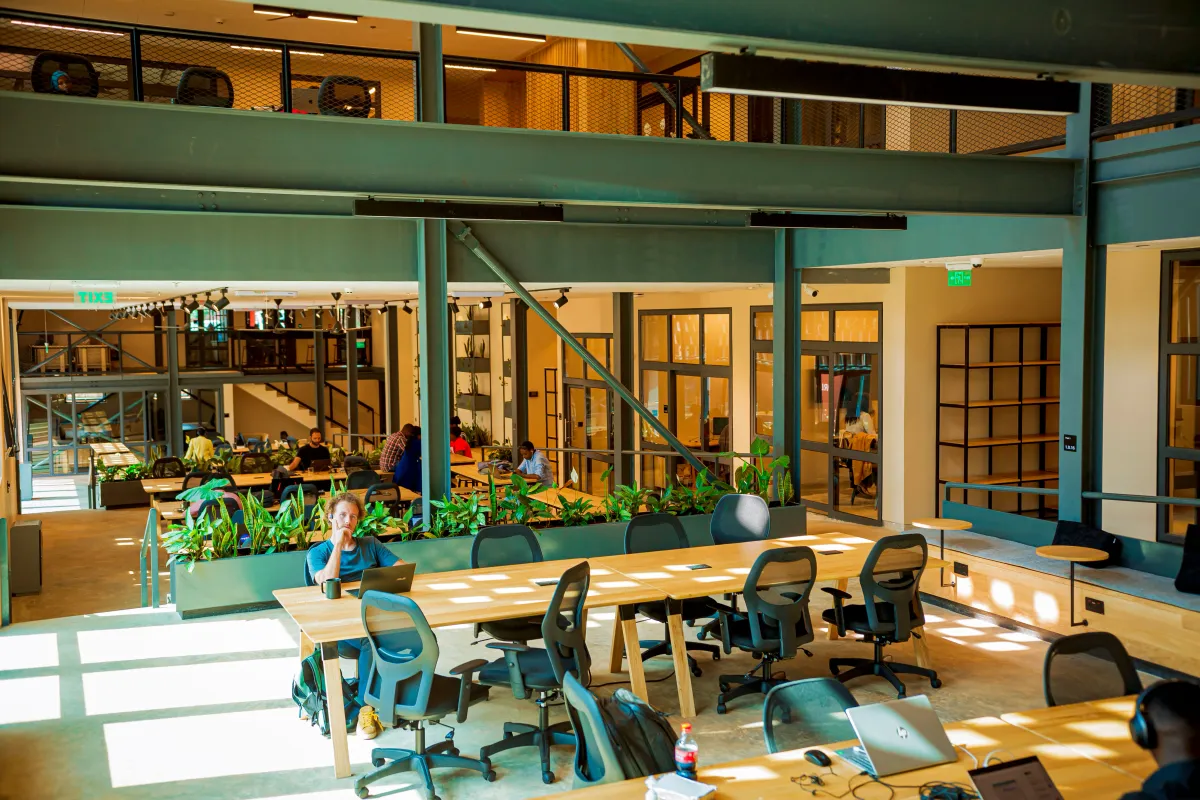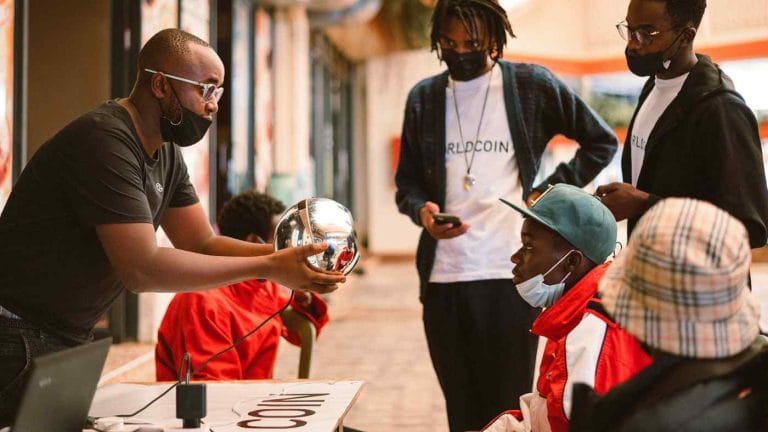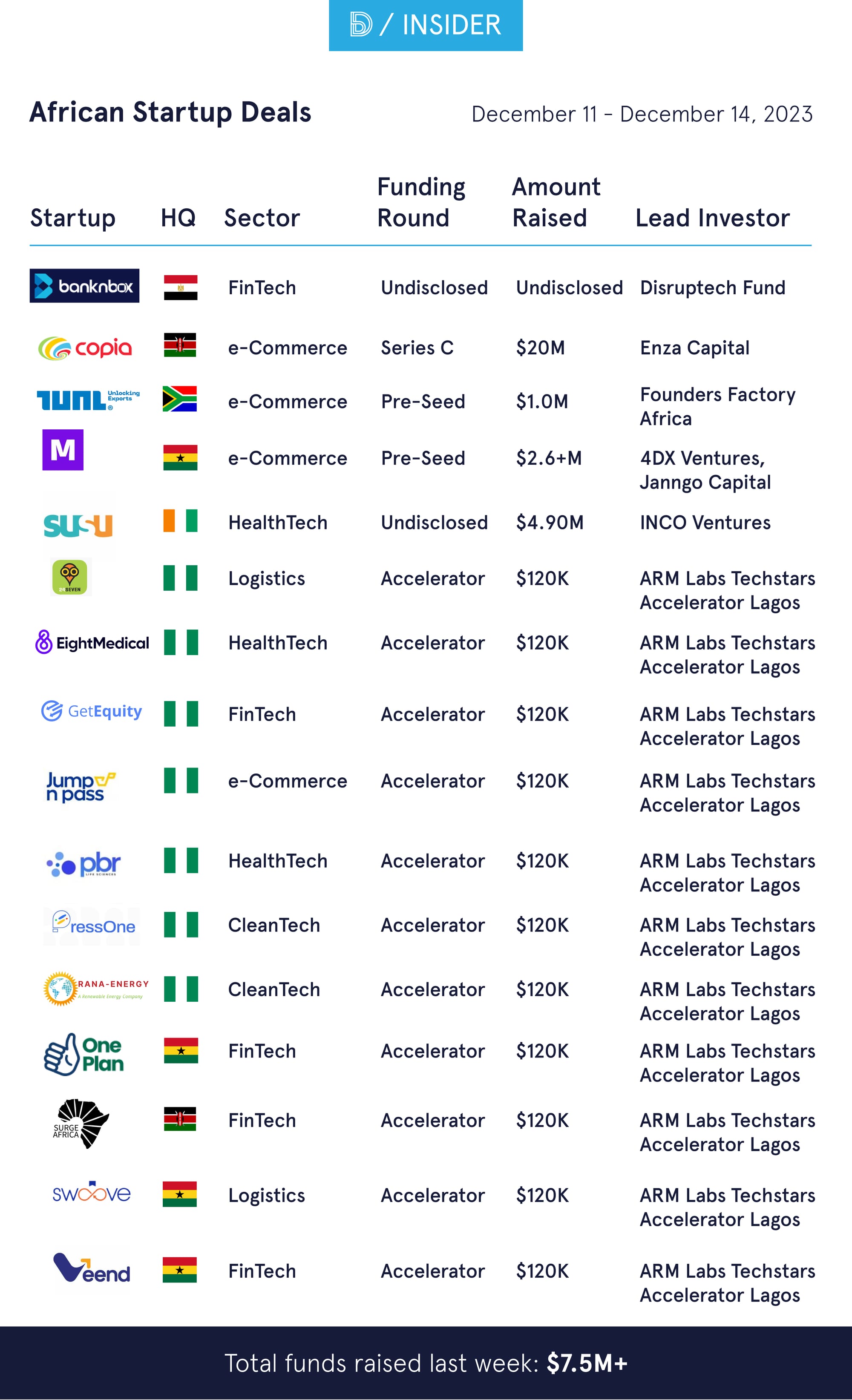BD Insider 216: African startups are trying to localise cost
Inside: Layoff of Chipper's US-based employees, Starlink adoption in Zambia and Worlcoin's operation in Kenya.

As you set your sights on the approaching new year, we kept a gift inside this letter to enhance your productivity. Keep reading to find out.
In this edition, we covered:
- Chipper Cash's latest layoff and the local strategy of African startups
- the drive for Starlink adoption in Zambia
- the latest on Worldcoin's Kenyan operations.
We also covered other noteworthy information including the latest African tech startup deals, opportunities, interesting reads, and more.
The big three!
#1. African startups are downsizing teams outside Africa to localise cost
The news: Chipper Cash, a Pan-African fintech startup, recently laid off about 15 employees, mainly within its US office. This marks the fourth round of layoffs for the company this year, affecting various staff members, including high-ranking executives like Alicia Levin, the former global COO, and Leon Kiptum, the former country director for Kenya.
"We constantly look to ensure we have as much efficiency as possible within our global organisation," stated a spokesperson from Chipper Cash, as quoted by TechCabal, the first to report on the layoffs.
Reports indicate that employees located in Africa were not impacted by the recent downsizing.
A new trend? Last month, Paystack terminated the employment of 33 employees in Europe and the UAE. According to Shola Akinlade, co-founder and CEO of Paystack, the move was part of efforts to "localise costs". "We’re changing our operating model to prioritise locating team members within the markets we serve," he said.
Before Paystack and Chipper made their moves, Jumia executed a 60% reduction in managerial headcount in Dubai in February. The remaining staff members based in the Dubai offices were then relocated to African countries–mostly in Morrocco, Egypt, and Cote d'Ivoire—as part of the company's strategy to drive profitability.
The actions taken by both fintechs and Jumia draw attention to the economic challenges that African startups are grappling with.
The devaluation of currency in Africa, especially in Nigeria—one of the primary markets for Paystack and Chipper Cash—has presented a challenge for many startups. Most startups secure investments in foreign currencies, such as US dollars, even though the majority of their revenue is generated in the local currency. As a result, they encounter difficulties covering software costs and salaries [of foreign team members] in dollars.
Zoom in: While reducing software costs might be challenging for most startups, downsizing teams outside Africa appears to be a viable option for cost-cutting. However, the exodus of tech talent from the continent could pose a significant threat. 38% of African developers work for at least one company based outside of the continent, according to the 2021 Africa Developer Ecosystem report by Google.
"So many of our very experienced talents, especially in the area of software engineering, are [...] leaving the country," says Abubakar Suleiman, CEO of Sterling Bank, a Nigerian commercial bank.
Mayokun Fadeyibi, senior vice president for West Africa at Autochek Africa, also admitted to Rest of World that "There’s a shortage of talent across the board".
As these startups aim to localize costs by recruiting and retaining employees based in Africa, there may be a heightened competition for talent.
#2. Zambia wants to distribute Starlink kits among lawmakers to drive civic engagement.
The news: In a move aimed at deepening internet penetration and e-government, Zambia has announced that it will share Starlink kits to its residents, via their lawmakers. This will include a one-year subscription.
"These kits are not just tools; they are enablers of progress," according to Felix Mutati, Zambian minister of science and technology, "With Starlink, wherever you are, it will work with no issues, as there are many low orbit satellites across the world, from which the signal can be picked."
Mutati claims that the Starlink kit will be able to connect about 300 users at the same time.
"Access to technology and information is no longer a luxury for our people. A great step, as we work towards affordable digital access for all," says Hakainde Hichilema, the president of Zambia.
The project will be executed by Smart Zambia, an e-government agency.
Know more: Starlink started its services in Zambia in October of this year. As of now, the Starlink hardware is priced at 10,744 Zambian kwacha ($505), and the monthly subscription is 507 Zambian kwacha ($24), according to the Starlink website.
Most Zambians earn less than $2 per day, so lawmakers may be responsible for covering the subscription cost. However, specific details regarding the project's implementation have not been disclosed.

🎁 The Gift: Accelerate your tech journey!
We curated 50+ free productivity tools to make your work easier as a tech professional.
#3. Worldcoin might resume Kenyan operations in 2024
The news: Worldcoin, which was paused in Kenya for data security reasons four months ago, might restart operations in the country next year.
Citizen Digital, a local publication quoted a source saying that: "Worldcoin is working directly with regulators to meet Kenya's requirements, particularly as the Assembly considers new regulations. Stipends will remain and will expand to locations across the country."

"We look forward to resuming operations [in Kenya] while continuing global rollout," CEO of Worldcoin, Alex Blania posted on X in August shortly after the ban.
Know more: Back in July, Worldcoin initiated the collection of Kenyan residents' biometrics by scanning their irises using its orb, priced at $54. “I've heard there's money to be made here. The money will help me, right now life is not easy,” one of the registered users in Kenya said.
Within the first week, over 350,000 registrations were completed, accounting for 25% of the global registered data at that time.
Related Article: An iris scan for $54: Inside the Worldcoin controversy in Kenya
David Njoga, Kenya’s head of cybersecurity, policy, and standards, stated that Tools for Humanity, the parent company of Worldcoin, initially entered the country as a research entity before transitioning to data processing.
"This exposed gullible Kenyans who were offering themselves just because of the small stipend on offer," he said. "From interviews we conducted, we established the data was transferred to the Amazon servers based in the US. They had indicated the data is secure but that needs deeper investigations."
Zoom in: In October, a Kenyan parliamentary committee, established in August to scrutinise Worldcoin's operations and activities in the country, suggested its closure.
Before the parliament's recommendation, Kenya's President, William Ruto, met with Sam Altman, co-founder of Worldcoin, at Silicon Valley during the US-Kenya Business Roadshow. While the specifics of the meeting were not disclosed, Ruto has previously refrained from considering shutdown as a solution to address issues surrounding emerging technology in the country.
Nevertheless, Worldcoin's potential comeback in the country will face scrutiny from regulators, civil society, and the media.
💰 State of Funding in Africa
Techstars has selected 12 African startups for the second cohort of its Lagos-based accelerator programme in collaboration with ARM Labs. Most of the startups in the cohort are from Nigeria, but they also picked some from Ghana and Kenya. Four of the startups have at least one female co-founder.
The list of selected startups and other deals announced last week is curated in the table below:

📚 Noteworthy
Here are other important stories in the media:
- Eutelsat's OneWeb beats Starlink to internet-starved Libya: OneWeb, Eutelsat’s rival to Elon Musk’s high-speed satellite internet service, Starlink, has made inroads into Libya, a country in northern Africa.
- Power crises renew South Africa’s clean energy ambitions: South Africa's economy suffers from a crippling outage crisis, with businesses and citizens enduring 12-hour blackouts daily.
- Wyclef Jean inks deal to build a tech hub in Plateau state: Wyclef Jean, a Grammy-winning artist and mogul has signed a partnership with the Plateau state government to build a tech hub on 4000 hectares of land within the state.
- A top-tier South African telco is handing over control of its assets: Cell C has had sustainability challenges since entering the market in 2001, and struggled to match investments by its closest rivals.
- Reforms give Ethiopia's startup scene a fighting chance: In recent years, the Ethiopian government has set up a fund for innovation, approved a policy on Science, Technology, and Innovation, created the Digital Ethiopia 2025 plan, and started preparing a Startup Act. Andrew dives into the startup scene.
💼 Opportunities
Jobs
We carefully curate open opportunities in Product & Design, Data & Engineering, and Admin & Growth every week.
Product & Design
- Moniepoint — UX Writer and Technical Product Manager, Nigeria
- Kuda — Motion Designer, Nigeria
- Reliance Health — Product Designer, Nigeria
Data & Engineering
- LemFi — Senior Backend Engineer, Nigeria (Remote)
- Jumia — Data Engineer (Egypt) and Snr Engr Manager (Kenya)
- Moniepoint — Head of Data (Kenya) and Data Engineer (Nigeria)
Admin & Growth
- Root Capital — Portfolio Manager, Ghana (Remote)
- ARM HoldCo — Lead, Sales and Marketing, Nigeria
- GIZ — Junior Comms Specialist, Ghana
- The Republic — Social Media Manager, Nigeria
Other opportunities
- Entry-level roles for women: Sterling Bank is hiring for roles in Product Design, Software Engineering, DevOps Engineering and Product Management, for its Tech Amazon programme. Applicants must have a first degree from an accredited university.
- For Nigerian undergraduates: The Nigerian Communications Commission is inviting Nigerian students who have completed an industrial training program and developed a digital product to apply for the Young Innovative Builders Programme. Applications close on December 13, 2023.
If you enjoyed this edition, please share and give us a shout-out.
Thank you for trusting us to bring you news about the African tech ecosystem.







Comments ()